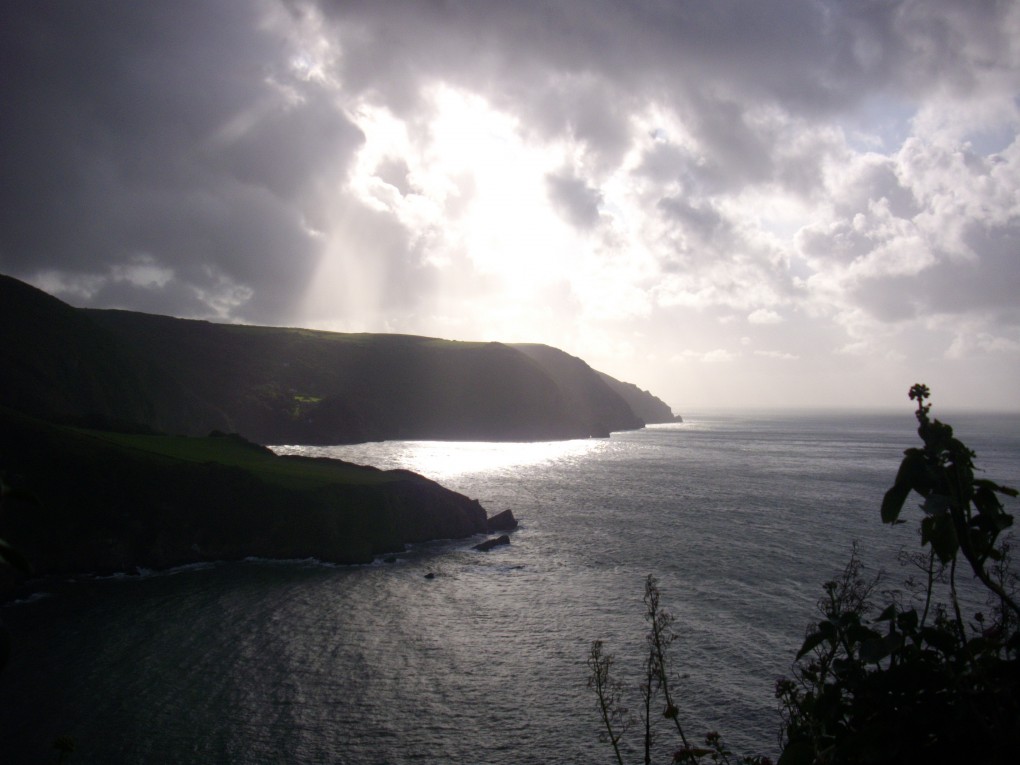I am currently receiving weekly meditations from Amos Smith, Author of “Healing the Divide – recovering Christianity’s Mystic Roots”. Which I am finding extremely thought provoking and resonant. Titles like; Fences and Riverbanks and The Power of Lent have made me challenge myself on some recent changes in my perception of the way I live out my Faith. As we are in the Christian season of Lent, alongside Amos’s weekly meditations, I am also engaged in a time of weekly “Lent Retreat” – meeting the “Women of the Passion”. Unknown women who maybe have no more than a one line mention in one of the “Gospels” – “the gate-keeper of the Temple forecourt” who challenged Peter, or the nameless wife of Pilate, who begged her husband not to get involved in the trial of “this innocent man”.
As I have got older and more particularly in recent years these types of “Retreat”, “Contemplation” “Meditations” have become more vital, essential to my sense of well-being. Sacred Spaces in an overly busy, noisy world. Noisy in every sense of the word, cramming our thoughts and minds with every conceivable transaction, both sought or imposed. Either through work or the general rough and tumble of every day life.
They are a wonderful way to both unravel and make sense of both our interior and extrinsic world. A time also – just “to be”, and contemplate and focus on “the Divine” and his/her wonderful creation in awe and wonder.
For me the ideal time to do this is first thing in the morning. Indeed every morning I spend at least 20 minutes in this quiet time before embarking on the day, and probably an hour over the weekend or during the holiday periods, that my work in a school allows me to enjoy. This has been my pattern for the past 27 years, and without this discipline I am convinced that the – at times – extremely challenging periods of my life would have brought me close to complete breakdown. Instead, due to these regular times of Retreat, although there have been moments of fragility, they have always been kept at bay.
The content and method of these meditations have changed over the years, most particularly during the past few years – but that is as it should be. How and what, and upon Whom our contemplations are focussed are bound to, not only change, ebb and flow as do our own lives and circumstances, but also just as we are “uniquely formed and made”, so our methods and modes of transcendence will alter in view of our own character and traits. Therefore, I would not presume to prescribe a set method, other than to say that I believe everyone will benefit if they set aside a regular time of “quiet” where nothing else is able to intrude.
For some that will be on a daily basis, perhaps at the start of the day, for 20 minutes or longer. Others will find that evenings or midday are more convenient. As far as a “place” is concerned it could be a room in the house, or outside, during a walk – or at the bottom of the garden. Yet others prefer to contemplate during long commutes into work, in the car or on a train. Some prefer complete silence, whilst others may choose to listen to some gentle music. You might want some form of structure, starting with complete stillness; relaxing and letting go of the stress and noise of the day, then meditating on a poem, a Biblical verse or passage, or an object, or view and then waiting, listening for a response, which in turn can result in conversation. For others it could be completely fluid and flow out of whatever comes to mind, totally spontaneous, and dependent on the circumstance and mood of the day.
From my own Christian perspective I take my lead from Jesus himself. There are a number of passages which show he made time in his day to be “quiet” to spend time in contemplation and prayer.
Very early in the morning, while it was still dark, Jesus got up, left the house and went off to a solitary place, where he prayed. Mark 1:35
After he had dismissed them, he went up on a mountainside by himself to pray. When evening came, he was there alone – Matthew 14:23
One of those days Jesus went out to a mountainside to pray, and spent the night praying to God – Luke 6:12
And of course the start of his ministry shows him taking 40 days away from everyone and everything, deep in the wilderness. He spent those 6 weeks apart from all distractions including in that time not only prayer but also fasting – in preparation for the three year ministry that ended in him sacrificing all on the cross. We can find the description of this time in both Matthew chapter 4 and Luke 4. As Christians we still recognise and some also practise, this time of preparation during the period of Lent, leading up to Easter.
Therefore, if the author and perfecter of Christianity felt that this was an essential element of daily life. It would be improvident if I didn’t follow his example.
It might sound “worthy” or even “hard work” to attempt to incorporate times of retreat into already busy lives, but I know that missing my 20 minutes of “quiet” – deepening my relationship with Yahweh (Ancient Hebrew for God – “I AM”) would rob me of so much. I relish weekends – Saturday in particular, when I can immerse myself in Him a while longer. They give my life meaning, they are my Spiritual Oasis’s, when I can drink deeply from the Wells in the desert. They replenish me and make me ready for all that life brings – consoling, nourishing with Healing – Solace – Peace -Guidance. Enjoy.
